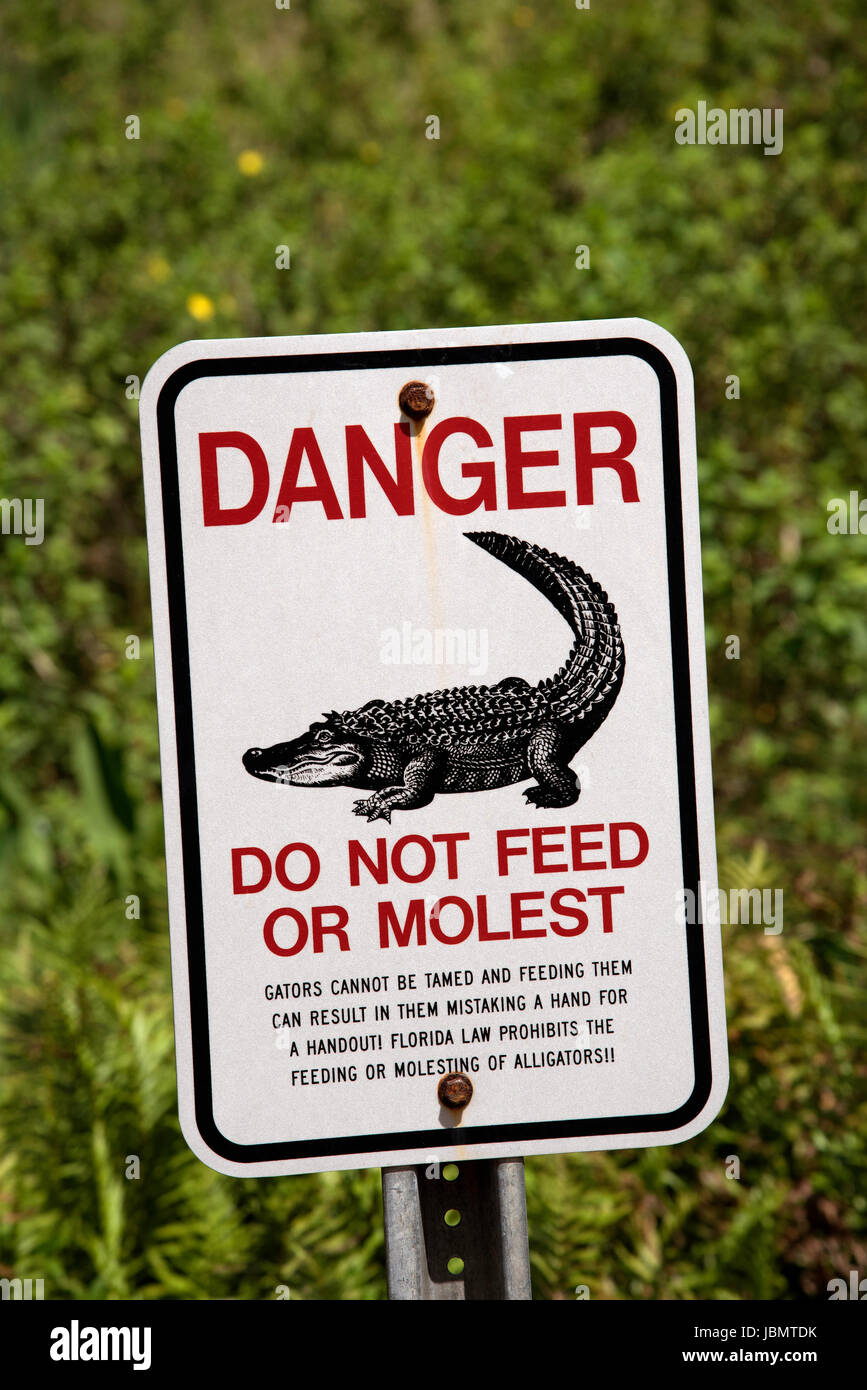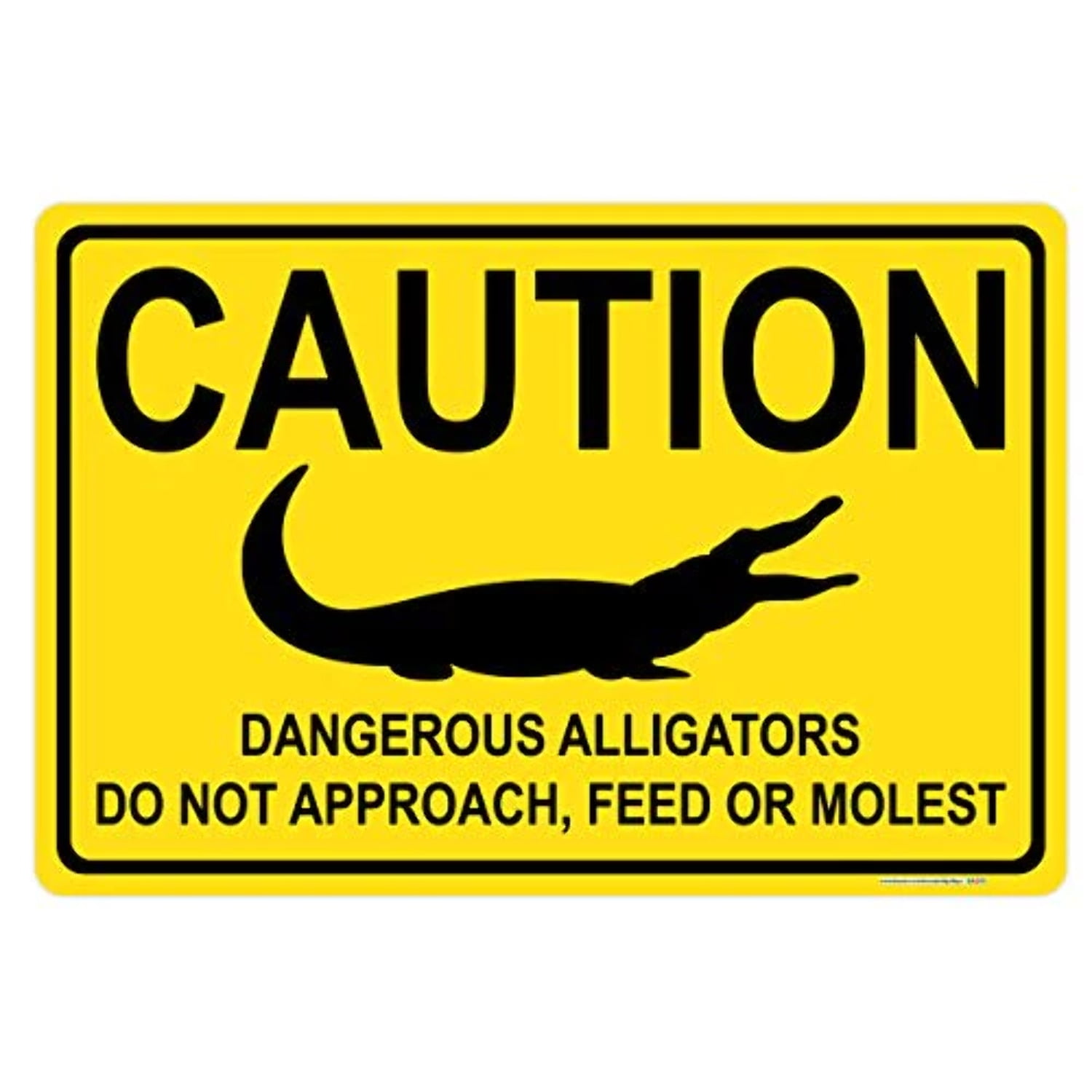Do Not Feed Or Molest The Alligators: Understanding The Importance Of Wildlife Safety
Alligators are fascinating creatures that play a crucial role in our ecosystem, but they can also pose significant risks if not respected and understood. The phrase "do not feed or molest the alligators" serves as a critical reminder that interacting with these wild animals can lead to dangerous situations for both humans and alligators alike. In this article, we will delve into the reasons behind this warning, explore the behavior of alligators, and discuss how to coexist safely with these formidable reptiles.
From their ecological importance to their potential threats, alligators are a significant part of many natural habitats. This article aims to provide valuable information about alligators, emphasizing the need for responsible behavior around these animals. As we explore this topic, we will also examine the laws and regulations surrounding alligator interactions, share safety tips, and highlight the role of wildlife conservation.
Understanding alligator behavior is essential for anyone living near their habitats. By recognizing the signs of aggression and learning how to behave responsibly in alligator territory, we can ensure our safety and that of these incredible reptiles. Let’s dive deeper into the world of alligators and uncover the reasons why we should never feed or molest them.
- Lilibet Diana Mountbattenwindsor The Life And Legacy Of The Royal Familys Youngest Member
- Trumps 15 Promises A Comprehensive Analysis
Table of Contents
- Understanding Alligators
- The Importance of Not Feeding Alligators
- Risks of Molesting Alligators
- Alligator Behavior
- Legal Regulations Concerning Alligators
- Coexisting with Alligators
- Wildlife Conservation Efforts
- Conclusion
Understanding Alligators
Alligators are large reptiles native to the southeastern United States and China. They are primarily found in freshwater environments like swamps, marshes, rivers, and lakes. Understanding their role in the ecosystem is essential for appreciating the importance of their conservation.
The Importance of Not Feeding Alligators
Feeding alligators can lead to a range of problems. When alligators associate humans with food, they may become more aggressive and pose a threat to public safety. This shift in behavior can lead to increased encounters between humans and alligators, potentially resulting in dangerous situations.
Risks of Molesting Alligators
Molesting alligators, whether by poking, prodding, or otherwise disturbing them, can provoke aggression. Alligators are protective of their territory and young, and any perceived threat can lead to defensive behavior. Understanding the risks involved in such interactions is crucial for both personal safety and the well-being of these animals.
- Drew Scott Passed Away A Tribute To His Life And Legacy
- Diane Farr A Comprehensive Look Into Her Life And Career
Alligator Behavior
Alligator behavior is influenced by various factors, including habitat, season, and social dynamics. Understanding these behaviors can help individuals stay safe in alligator territory.
Aggressive Behavior
Alligators can display aggression for several reasons, including territorial disputes or protecting their nests. Signs of aggression include hissing, lunging, and tail slapping. It is essential to recognize these signs to avoid dangerous encounters.
How to Identify Alligator Territory
Alligator territory can often be identified by specific signs, such as:
- Presence of alligator tracks or slide marks
- Scratches on the bank where alligators have exited the water
- Large, sunning alligators on the banks or floating in the water
Legal Regulations Concerning Alligators
Many regions have specific laws and regulations regarding interactions with alligators. These laws are designed to protect both the animals and the public. Understanding these regulations is essential for anyone living or visiting areas where alligators are present.
Coexisting with Alligators
Coexisting with alligators requires awareness and respect for their natural behaviors and habitats. Here are some tips for safely enjoying areas inhabited by alligators:
- Keep a safe distance: Maintain a minimum distance of 30 feet from alligators.
- Never feed alligators: This encourages dangerous behavior.
- Stay vigilant: Be aware of your surroundings, especially near water.
- Keep pets leashed: Pets can provoke alligators, leading to dangerous situations.
Wildlife Conservation Efforts
Conservation efforts play a vital role in protecting alligators and their habitats. Organizations work tirelessly to ensure healthy ecosystems and educate the public about the importance of respecting wildlife. Supporting these efforts can help sustain alligator populations and their environments.
Conclusion
In conclusion, the message "do not feed or molest the alligators" is crucial for ensuring the safety of both humans and alligators. By understanding alligator behavior, the risks of interaction, and the importance of conservation, we can coexist peacefully with these magnificent reptiles. We encourage readers to share their thoughts in the comments section, spread awareness, and continue learning about wildlife safety.
Thank you for reading! We hope you found this article informative and engaging. Please visit us again for more insights into wildlife and nature conservation.
- Mindy Mccready A Deep Dive Into The Life Of A Country Music Star
- Lilibet Diana Mountbattenwindsor The Life And Legacy Of The Royal Familys Youngest Member

Danger Do Not Feed or Molest Alligators Florida Statute 372.667 Sign

Aligator danger and warning sign Florida USA April 2017 Do not feed or

Caution, Dangerous Alligators, Do Not Approach, Feed, or Molest Sign